Discover The Decibel
The Decibel

The Decibel
Author: The Globe and Mail
Subscribed: 2,574Played: 357,057Subscribe
Share
© 2025 The Globe and Mail
Description
Context is everything. Join us Monday to Friday for a Canadian daily news podcast from The Globe and Mail. Explore a story shaping our world, in conversation with reporters, experts, and the people at the centre of the news.
1177 Episodes
Reverse
Most schools are now off for winter break — but this year, some educators are wondering how much their students are learning. A KPMG survey found that over 70 per cent of Canadians over 18 years old now use generative AI to complete their school work. Professors and students are concerned that a growing reliance on tools like ChatGPT and Gemini could be weakening critical thinking skills. Recent research is now giving us further insight into that potential connection.The Globe’s Joe Castaldo reports on AI and tech. He tells us what educators and students say about how generative AI is impacting schools and what recent studies tell us about its effect on our collective critical thinking skills.This episode originally aired July 2, 2025.Questions? Comments? Ideas? E-mail us at thedecibel@globeandmail.com Hosted by Simplecast, an AdsWizz company. See pcm.adswizz.com for information about our collection and use of personal data for advertising.
Maryam Fatima was born with a condition called hemimegalencephaly, a rare birth defect where one side of the brain is abnormally large. She suffered from severe seizures from the moment she was born. They became so bad that they stopped Maryam from feeding, sleeping and breathing. Her life was at risk.That’s when a team at the Hospital for Sick Children in Toronto decided to attempt a first-in-Canada procedure to save Maryam’s life.Health Science reporter Jennifer Yang interviewed some of the medical professionals who performed the procedure, as well as Maryam’s mother, Muzna Nafees. She tells the story of how Maryam’s life was saved.This episode originally aired June 6, 2025.Questions? Comments? Ideas? Email us at thedecibel@globeandmail.com Hosted by Simplecast, an AdsWizz company. See pcm.adswizz.com for information about our collection and use of personal data for advertising.
Canadians have been spending a lot of time thinking about identity and their relationship to Canada. As U.S. President Donald Trump’s trade war drags on, taking an ‘Elbows Up’ approach isn’t just about economics – it’s also cultural. Many of the songs and albums that make up the soundtrack to your life are written and performed by Canadian artists – and they’ve helped shape what this country sounds like. Today, deputy arts editor Rebecca Tucker and reporter Josh O’Kane are here to talk about how they put together a list of 101 essential Canadian albums, and how the music we listen to reflects us as a country. We also called up Tamara Lindeman from The Weather Station, Joel Plaskett, and Torquil Campbell from Stars, all of whom were featured on that list, to tell us about the Canadian album that has inspired their work.This episode originally aired July 17, 2025.Questions? Comments? Ideas? Email us at thedecibel@globeandmail.com Hosted by Simplecast, an AdsWizz company. See pcm.adswizz.com for information about our collection and use of personal data for advertising.
The winter holidays are a time to cozy up with family – even if those family members are furry and of a different species. For many, dogs and cats aren’t just animals, they’re cherished loved ones who come into our lives at the exact moment we need them.This holiday season, The Decibel’s editor David Crosbie, Globe and Mail staffers and Canadians share personal stories about how they met their pets and how caring for them has changed their lives.Questions? Comments? Ideas? Email us at thedecibel@globeandmail.com Hosted by Simplecast, an AdsWizz company. See pcm.adswizz.com for information about our collection and use of personal data for advertising.
Many factors of modern life can make time feel like it’s moving faster than it actually is: hustle culture at work, a productivity compulsion at home, over-programmed kids – they’re all attempts to get as much as possible out of our time and keep up with the frantic pace of life. But life also has moments where time feels like it’s slowing down, or even stops. We know that time can’t actually slow down or speed up – but why does it feel like that?The Globe’s time use reporter, Zosia Bielski, speaks to The Decibel about why our perception of time can change, what it is about this particular moment that’s making us feel so pressed for time and how we can take back control of the pace.Questions? Comments? Ideas? Email us at thedecibel@globeandmail.com Hosted by Simplecast, an AdsWizz company. See pcm.adswizz.com for information about our collection and use of personal data for advertising.
The Canadian television show Heated Rivalry has found major success not just in Canada, but with American audiences, too. The show, a love story between two male hockey players, has broken television streaming records and taken over social media.The Globe’s television critic J. Kelly Nestruck joins The Decibel to talk about why Heated Rivalry has resonated with so many people, and how significant it is for a Canadian show to break through to global audiences so quickly.Questions? Comments? Ideas? E-mail us at thedecibel@globeandmail.com Hosted by Simplecast, an AdsWizz company. See pcm.adswizz.com for information about our collection and use of personal data for advertising.
Canadian counter-intelligence military officer Matthew Robar, is facing charges of espionage. The veteran military officer is accused of sharing information with Ukraine in its war against Russia, according to a source for The Globe and Mail. Robar was arrested last week, and charged with multiple offences related to passing highly sensitive government secrets to a foreign entity.Steven Chase, a senior parliamentary reporter for The Globe, speaks to The Decibel about what’s known about Robar, what the espionage charges mean, and how this development might affect Canada’s relationship with Ukraine.Questions? Comments? Ideas? Email us at thedecibel@globeandmail.com Hosted by Simplecast, an AdsWizz company. See pcm.adswizz.com for information about our collection and use of personal data for advertising.
This travel season, Canadians might be headed away for something other than a vacation.More Canadians are participating in medical tourism, travelling to another country to receive medical treatment, though some question its safety and the threats this poses to Canada’s public health care system.Sarah Bartnicka, a freelance writer for The Globe, explains the costs, the risks and what Canadians can keep in mind for best practices when travelling abroad for a medical procedure.Questions? Comments? Ideas? E-mail us at thedecibel@globeandmail.com Hosted by Simplecast, an AdsWizz company. See pcm.adswizz.com for information about our collection and use of personal data for advertising.
The attack on Jewish Australians at Bondi Beach in Sydney has sent shockwaves around the world. To many in Jewish communities, it mirrors previous antisemitic attacks seen in countries around the world over the past several years. Globe columnist and Pittsburgh Post-Gazette executive editor David Shribman joins The Decibel. He covered the Tree of Life shooting in 2018, where 11 Jewish people were killed in their synagogue in Pittsburgh. Shribman talks about how the recent shooting in Sydney impacts Jewish communities around the world and what living in Pittsburgh has taught him about life after tragedy. Questions? Comments? Ideas? Email us at thedecibel@globeandmail.com Hosted by Simplecast, an AdsWizz company. See pcm.adswizz.com for information about our collection and use of personal data for advertising.
Loyalty reward programs are everywhere we shop. They’re at coffee shops, retailers, airports and grocery stores. Many of us are connected to our points, but the rewards no longer seem to go as far as they used to.Vass Bednar, the managing director of the Canadian SHIELD Institute, explains the changes to Canadian loyalty rewards programs, what we are giving up when we hand companies our data in exchange for points – and if it’s even still worth it to collect rewards points anymore.Questions? Comments? Ideas? Email us at thedecibel@globeandmail.com Hosted by Simplecast, an AdsWizz company. See pcm.adswizz.com for information about our collection and use of personal data for advertising.
The heirs to Canada’s multi-billion dollar frozen food empire are fighting. New Brunswick’s McCain Foods is the world’s largest French fry maker, and is privately owned by the McCain family. Recently, one of its heirs, Eleanor McCain, requested to be bought out of her stake in the company – but her relatives are refusing to.Globe business columnist, Andrew Willis, has been reporting on the showdown inside one of Canada’s wealthiest families. He’ll explain the fight over ownership, whether it could impact the world’s biggest French fry producer, and how these tensions trace back to the 1990s dispute over succession between McCain Foods co-founders.Questions? Comments? Ideas? E-mail us at thedecibel@globeandmail.com Hosted by Simplecast, an AdsWizz company. See pcm.adswizz.com for information about our collection and use of personal data for advertising.
Mark Carney’s federal government has introduced its second tough-on-crime bill this fall. The new bill, Bill C-16, focuses on violence against women and children, changes to mandatory minimum sentences and the growing problem of court delays.The Globe’s justice reporter, David Ebner, explains the specific changes to the Criminal Code that this bill wants to make and what advocates and critics are saying about it.Questions? Comments? Ideas? Email us at thedecibel@globeandmail.com Hosted by Simplecast, an AdsWizz company. See pcm.adswizz.com for information about our collection and use of personal data for advertising.
Late-stage prostate cancer diagnoses are on the rise in Canada. According to a recent study, between 2010 and 2021, rates of prostate cancer discovered at Stage 4 increased by about 50 per cent in men aged 50 to 74. In men over the age of 75, rates were up over 65 per cent.There is a simple blood test that can screen for early signs of prostate cancer, called a prostate specific antigen, or PSA test; however, in 2014, Canada recommended against using the PSA for widespread screening. Today, Globe health reporter Kelly Grant explains what this study found and why these guidelines are so highly contested in Canada.Questions? Comments? Ideas? Email us at thedecibel@globeandmail.com Hosted by Simplecast, an AdsWizz company. See pcm.adswizz.com for information about our collection and use of personal data for advertising.
Hours before a strike deadline, Air Transat and the union representing airline pilots reached a tentative agreement. For customers, it comes as relief in the middle of a busy holiday travel season. And in a year already wracked by airline work stoppages, the threat of disruption and lengthy customer reimbursement periods continue to loom.Mariya Postelnyak, The Globe’s Consumer Affairs reporter, speaks about what you need to know as a traveller, what’s afforded in air passenger protections, and how to get what you’re owed if your flights get cancelled.Questions? Comments? Ideas? Email us at thedecibel@globeandmail.com Hosted by Simplecast, an AdsWizz company. See pcm.adswizz.com for information about our collection and use of personal data for advertising.
The Canadian manufacturing sector has been having a hard time, which has been made worse by U.S. tariffs. The impact of these tariffs varies company to company. So a team of Report on Business journalists from The Globe spoke to several manufacturers to see how they’ve fared this past year.Matt Lundy, The Globe’s Economics Editor, speaks about how badly these companies have been hurt, what they’re doing to try to cope and whether federal government supports have been any help.Questions? Comments? Ideas? Email us at thedecibel@globeandmail.com Hosted by Simplecast, an AdsWizz company. See pcm.adswizz.com for information about our collection and use of personal data for advertising.
For families, the tragedy of opioids is beyond measure. The opioid epidemic has claimed tens of thousands of lives in Canada and has been recognized as a public health crisis, but it’s also an economic one – and it disproportionately affects workers in key sectors like construction and the trades. As Ottawa ramps up its push to build major projects fast, could the ongoing toxic drug crisis slow it down?Today, Globe reporter Jason Kirby joins the show. As part of our Poisoned series, he spoke with workers, companies, unions and health researchers to understand the grip the crisis has on the construction industry and what’s being done about it.Questions? Comments? Ideas? Email us at thedecibel@globeandmail.com Hosted by Simplecast, an AdsWizz company. See pcm.adswizz.com for information about our collection and use of personal data for advertising.
Canada is in the midst of reframing its approach to military spending. The reasons for this are twofold; a commitment to fulfilling NATO spending as part of GDP, and the push to diversify spending away from the U.S. To that end, Prime Minister Mark Carney has recently signed a deal joining the EU’s military procurement fund, granting Canada access to both selling and purchasing defence materiel.Steven Chase, The Globe’s senior parliamentary reporter, is on the show to discuss what this means for our burgeoning national defence industry, the political considerations involved, and where our national armed forces go from here.Questions? Comments? Ideas? E-mail us at thedecibel@globeandmail.com Hosted by Simplecast, an AdsWizz company. See pcm.adswizz.com for information about our collection and use of personal data for advertising.
It’s not unusual for business owners to forge ties with governments, but there are rules around conflicts of interest when it comes to procurement. In February, 2025, an Alberta senior public servant stepped forward with allegations of political interference in the awarding of large health contracts. These allegations prompted investigators, auditors and opposition politicians to look closely at the ties between Premier Danielle Smith’s government and an Alberta businessman, Sam Mraiche.Mraiche’s company, MHCare, had been awarded hundreds of millions of dollars worth of procurement contracts from Alberta Health Services. A Globe and Mail investigation found that the connections between Mr. Mraiche, purchasing officials, and senior Alberta political figures have existed longer – and are more extensive – than than previously reported.Today, Carrie Tait, a reporter with The Globe’s Calgary bureau, and Tom Cardoso, an investigative reporter with The Globe, are on the show to talk about their investigation into the ties between a serial entrepreneur and the Alberta government.In a previous edit of the episode, we made an error in stating Sam Mraiche was not in a photo with Alberta Premier Danielle Smith. Photos sourced by The Globe show Mraiche in photos with Premier Smith taken in May 2024 in Vancouver and June 2, 2024. The error has been removed from the episode.Questions? Comments? Ideas? E-mail us at thedecibel@globeandmail.com Hosted by Simplecast, an AdsWizz company. See pcm.adswizz.com for information about our collection and use of personal data for advertising.
With the holidays right around the corner, households are getting ready for company and deep cleans are underway. Even the idea of letting family and friends see a clutter-strewn home can be anxiety-inducing, and images of perfectly-clean celebrity homes on social media don’t help. But what are we actually losing when we prioritize the act of cleaning over the people we do it for?Zosia Bielski, The Globe’s Time Use reporter, digs into the societal pressure we all face over deep cleaning, why the work often disproportionately falls on women and how letting our guard down in our living spaces can deepen relationships.Questions? Comments? Ideas? Email us at thedecibel@globeandmail.com Hosted by Simplecast, an AdsWizz company. See pcm.adswizz.com for information about our collection and use of personal data for advertising.
Across Canada, highways and rural roads are studded with cellular ‘dead zones’. In some provinces, coverage gaps span over 30 per cent of major roads. In some cases, you can’t receive calls and texts for more than 100 kilometres. So when something goes wrong, what do people do?Today, the Globe’s telecoms reporter Irene Galea and national news reporter Jill Mahoney have been investigating how many of the country’s major roads and highways are disconnected. They explain why years-long public safety risk persists, how it affects the Canadians driving through them, and what is being done about the problem.Questions? Comments? Ideas? Email us at thedecibel@globeandmail.com Hosted by Simplecast, an AdsWizz company. See pcm.adswizz.com for information about our collection and use of personal data for advertising.


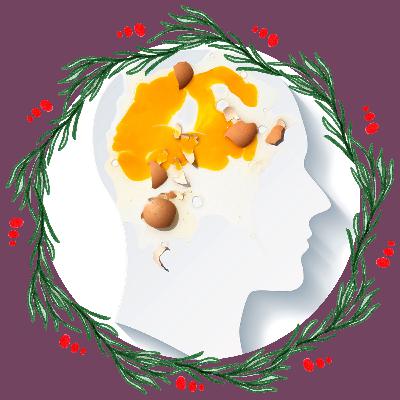





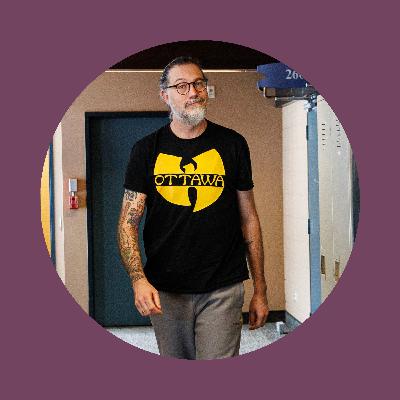
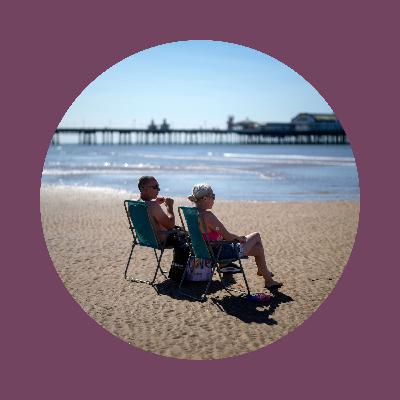


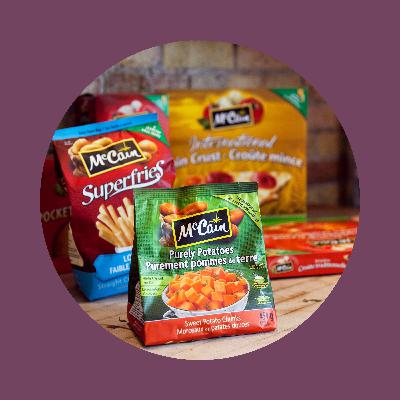



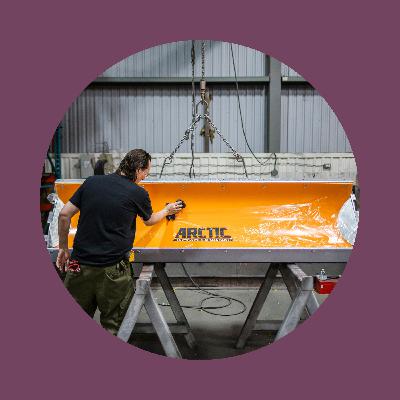
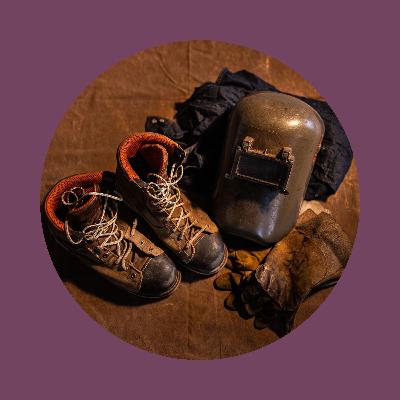


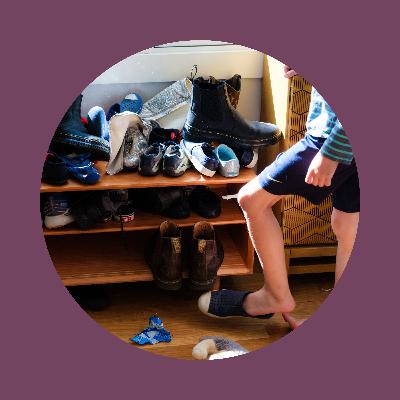




what about Starlink?
51000 teachers may strike leaving 700000 students stranded. Math says that's 1 teacher per 14 kids.
how is it that our government is not getting involved in such crime against humanity? I am shocked. I am disappointed in our lack of involvement. if there is intervention from our Canadian side, why don't we know it.
This was a good story to cover, but lacks context and will only make it more difficult for the Canadian military to recruit good people. Why are fewer young Canadians willing to defend their country? A constant barrage of negative media reporting about CAF. The overwhelming majority of Canada's soldiers dedicate their lives to their country and willingly assume unlimited liability to defend our freedom.
ridiculous
2 women discuss what it takes to be a man. ok.
there's way more important things than f****** gender right now
Carney was marvelous, simply. I think the short fingered vulgarian was somewhat intimidated by the quiet adult
I loved Doug Sanders description of Donald speak as 'word cloud'. Canada needs to improve relationship with China. We've adopted US policies in a failed attempt to isolate China, we should turn that around ASAP
it's not antisemitism, it's anti Israeli colonial genocide.
The social pressure is the only thing binding these kids to waisting two more years. My father-in-law left high school at grade 10 to work with his father-in-law as a fine carpenter making furniture. By the time he was in his early 20's he had already had a career bought a house taken education to become a mechanic and had his first of 3 boys. He is a wise and kind man who continues to support his family. I'm sure even first generation Canadian children would honour thier parents sacrifice and hard work by practicing a trade. They will have the opportunity to start thier own business and mentor down the road. As well, as my own father did, save money by building thier own home or providing thier skill to thier loved ones saving them money. The trades need a rebranding in hyper educated metropolitan areas because rural areas where a work-life-balance is struck as cultural, know these are the people who always have jobs, build and care for our communities. Respect to our Trades and the T
a terrorist attack justifies genocide?
Why is no one talking about reducing our population? Why is it always about more, more, more? Why is no one talking about how increasing populations are going to cause massive fresh water shortages? We get every crappy thing we deserve.
lock them up for the max.
Never too late to plant a tree
Fuck housing. What about food supply as farms are sold off or water when we are already experiencing water shortages?
I requested ATIP for the Citizenship application of my family more than a year ago and never got any response fro IRCC. It’s a totally broken system.
what about Dimond and leading Architects who were defending the city. Do we really want seamless to 24/7 servailance? Many who have participated in building this city had questions about the true ability of the servailance at this level.
Goosebumps!!
What is wrong with this podcast's sound? Thr volume goes up and down itself.